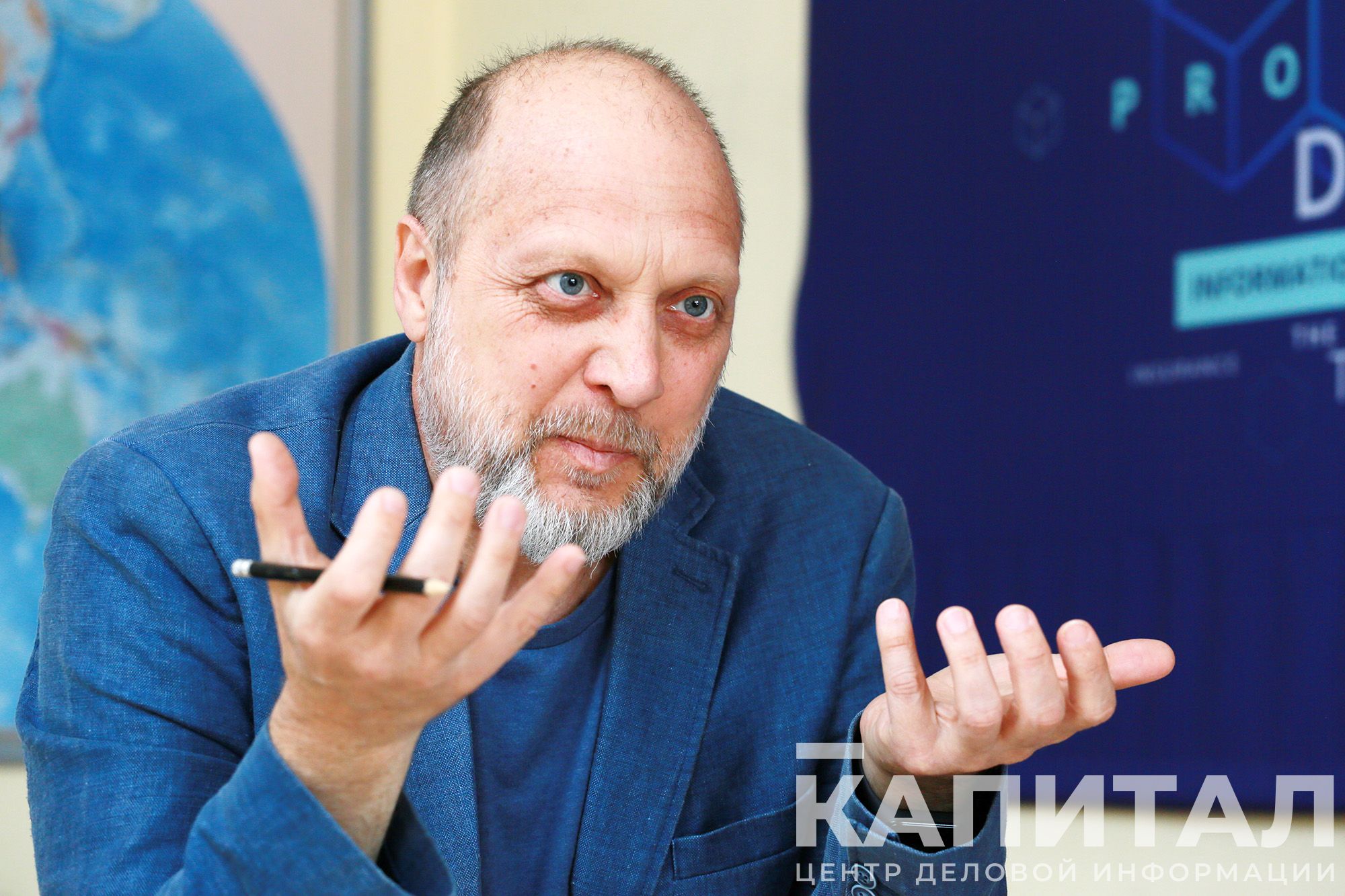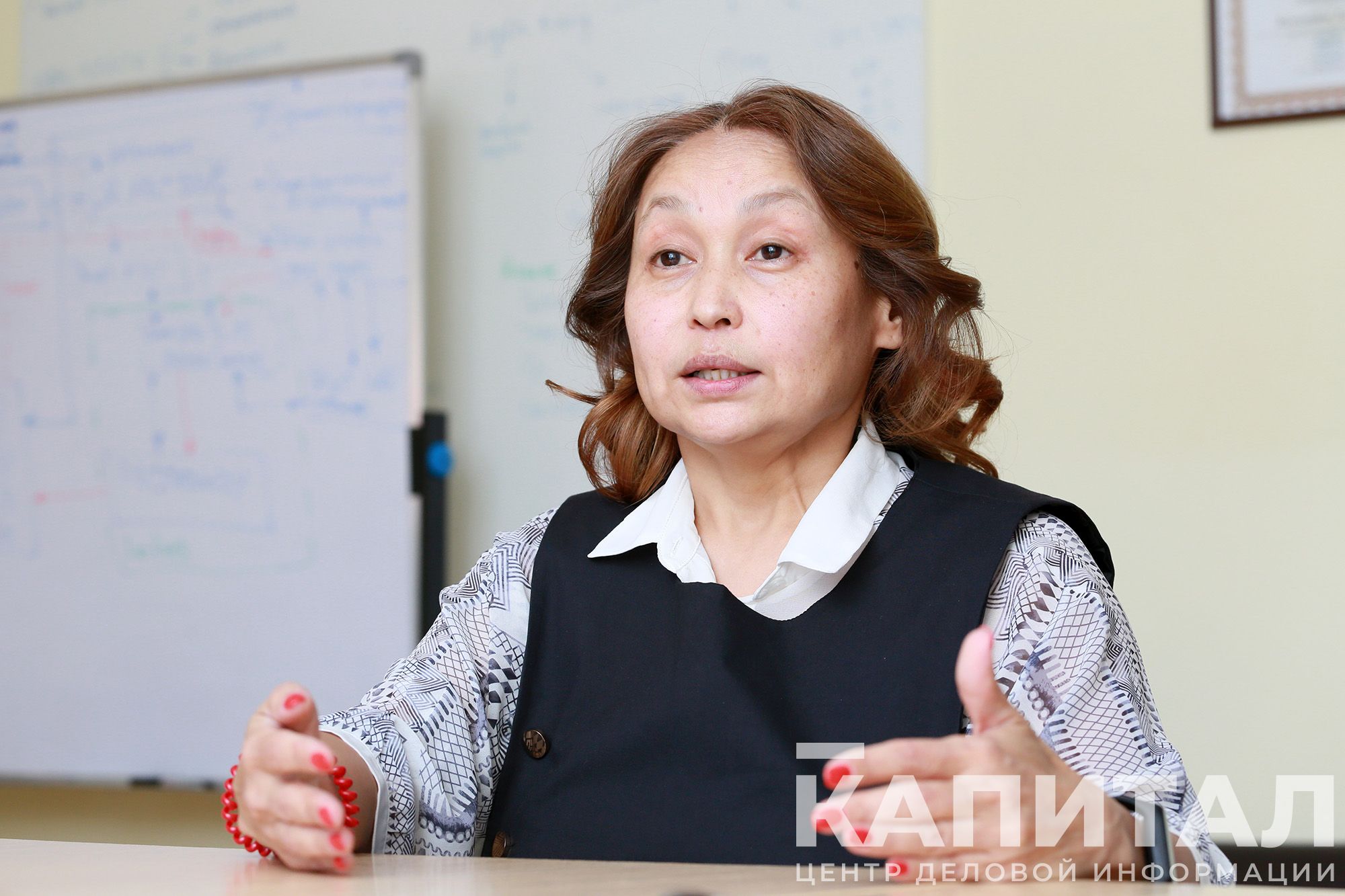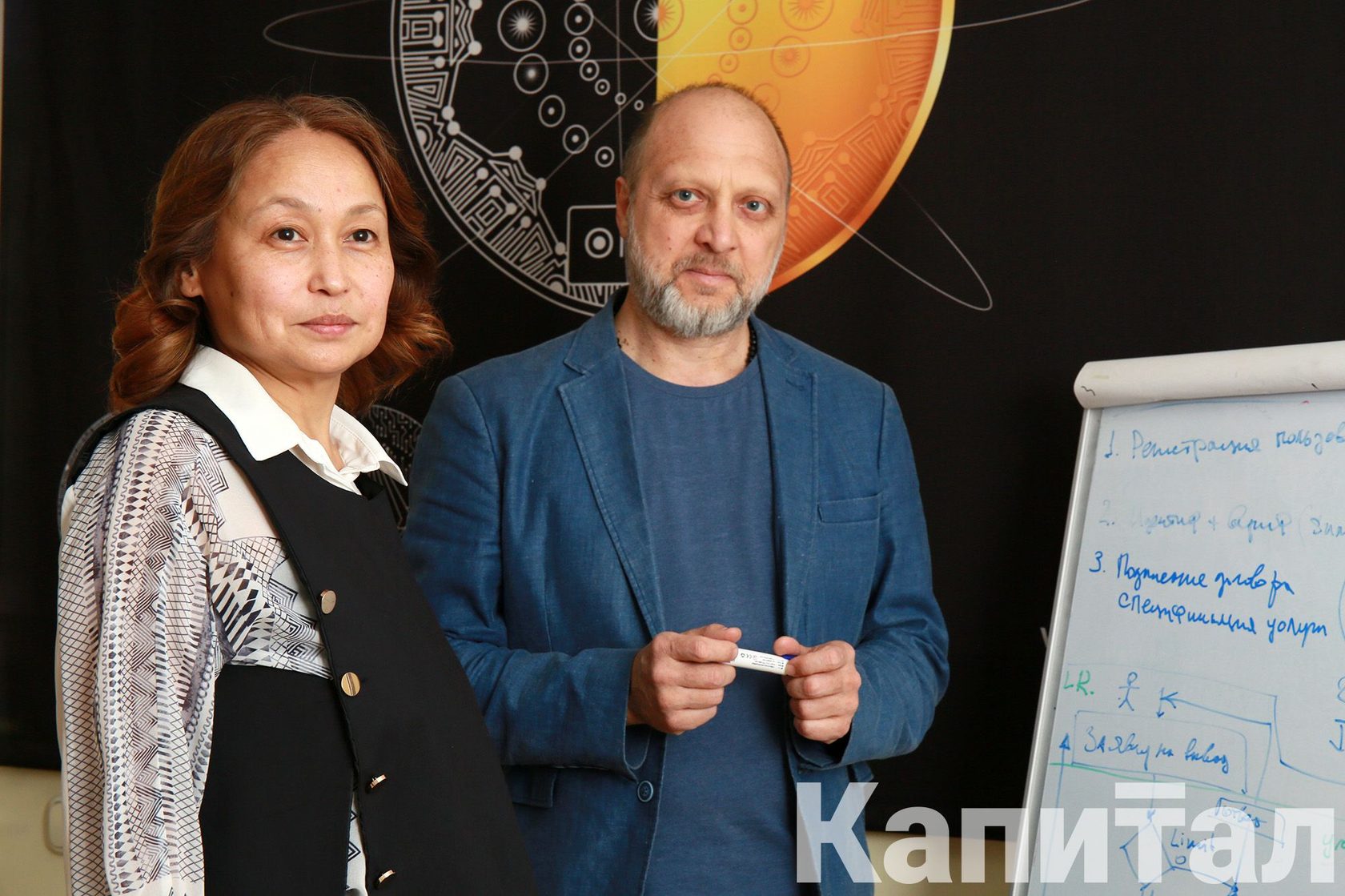- Alexander, Galiya, please explain what is the essence of your startup and how did you get the idea to create it?
Alexander Kolokhmatov (A.K.): To begin with, the world lives in a centralized system, in which there are always privileges and the division of society into classes. Therefore, the owners of one of these systems at any time have the opportunity to tweak it to please and use it in their own interests. This is exactly what is happening now with the US dollar.
Look, over 30 years of hard work, 1.5 billion Chinese have earned $ 4.5 trillion, and the Fed just printed this amount in 4 weeks. Is it fair? Due to the uncontrolled right to print US dollars, the depreciation of property of citizens around the world continues. Accordingly, we see that there is a need to create a new value - decentralized finance (DeFi), which is an alternative to the current system. The decentralized economy, expressed in blockchain technologies, deprives anyone of privileges.
Galiya Akhmetzhanova (G.A.): Our project proposed a solution to the problem that did not allow integrating blockchain technology (DeFi) into the corporate sector. One of the main advantages of blockchain is that it is a peer-to-peer system that provides the same rights for all participants. But this is also a problem, since an ordinary user gets unlimited rights to use a corporate account.
In our F2C project, we have combined the positive aspects of the centralized system and the blockchain, taking into account their disadvantages. As a result, we got a system that uses the controllability of a centralized system and the transparency of blockchain technology.
The essence of the project is an international online service that ensures the legal exchange of fiat funds into crypto assets in accordance with the requirements of the law.
А.К.: At the moment, the capitalization of the cryptoasset market is quite small - about $ 250 billion. For comparison: the capitalization of the traditional stock market is $ 100 trillion. The difference is almost 500 times. At the same time, we have recently seen people begin to lose confidence in the centralized system. Accordingly, their assets smoothly flow from the traditional market to the digital asset market. And since we solved the basic problem of trusting our own employees, it became possible to replicate blockchain in the traditional financial sector.

А.К.: We started developing the project in April last year. About 50 people, who were in different countries, took part in the process at once.
Firstly, we have built a service that allows migrating fiat funds to cryptoassets and works like an exchange. We have launched it since the beginning of the year and are testing it manually. However, we have already managed to serve about 20 clients. In fact, once we get it automatic, our international online system will be able to serve 1,000 to 10,000 people a day.
Secondly, in continuation of the first service, we have created a custodian service for crypto assets. It is unique in that it allows the clients to check the availability of their assets, bypassing managers (the problem of centralized systems), and at the same time to protect themselves in terms of losing access to their assets due to the compromise of the secret key.
G.A.: We started developing the project in April last year. About 50 people, who were in different countries, took part in the process at once.
Firstly, we have built a service that allows migrating fiat funds to cryptoassets and works like an exchange. We have launched it since the beginning of the year and are testing it manually. However, we have already managed to serve about 20 clients. In fact, once we get it automatic, our international online system will be able to serve 1,000 to 10,000 people a day.
Secondly, in continuation of the first service, we have created a custodian service for crypto assets. It is unique in that it allows the client to check the availability of their assets, bypassing managers (the problem of centralized systems), and at the same time to protect themselves in terms of losing access to their assets due to the compromise of the secret key.
-What is your know-how after all?
G.A.: As we already said, there is a decentralized system - blockchain and there is a centralized system - IBM Notes/Domino, which is used in many banks. The latter's main purpose is to maintain a sequence of signatures. This means that when an operation is performed, step-by-step risk management is built, and the level of access to operations is diversified accordingly. Thus, there is “afterbirth control”, which is not in the blockchain. When the chain of employees confirms all operations step by step, Notes/Dominо has the opportunity to generate a secret key and send the solution to the blockchain.
As a rule, the system in the bank is closed. In this case, all basic information about him is stored on the blockchain. But a user who understands how to work with this information can log into the system at any time and see how much money is “in the wallet” of the bank. This transparency is provided by the blockchain. Meanwhile, security is contained in a centralized system. It is the uniqueness of our project that consists in combining both systems into one component.
For example, why don't corporate centralized structures go to blockchain? This is because they are afraid of the risk of losing the secret key. In the event that you grant access to your manager, you automatically provide him with gigantic powers. In our solution, this opportunity is blocked, the human factor is torn apart, which means the manager who is engaged in the withdrawal of your money does not see this key, only the system itself sees it.
When we studied this problem, we realized that, in principle, we solved the problem of integrating blockchain technology into the corporate sector.

А.К.: Currently, we have submitted an official application with our proposal to the Astana International Financial Center. Despite the fact that the AIFC leadership announced that it is engaged in the digital economy and blockchain, by and large, fundamental decisions on how to safely and competently save users' cryptoassets have not yet been presented. After all, to be sure that the digital economy works correctly, it is necessary to provide a certain set of evidence that indicates that this system can be trusted. Our custodial solution gives that confidence.
In addition to the AIFC, we have sent proposals to several more banks, not only in Kazakhstan, but also in Russia, Switzerland, as well as in the Central Asian region, but all of them are still under consideration.
- Do you give recommendations to your clients regarding investing in cryptocurrency?
А.К.: No. We have only created a platform that provides access to these services, but we do not make any recommendations for buying cryptoassets. The decision about it is made by the investor himself/herself. We, in turn, take a commission of 2.5% at the entrance. At the same time, the minimum amount should start from $ 10 thousand, because a smaller amount is already becoming unprofitable for us.
- What contingent are your services intended for?
А.К.: Mainly for large financial institutions, stock exchanges and exchangers. If we talk about individuals, they are wealthy people.
- How much of the initial investment was made in the project?
А.К.: About $ 400 thousand from the funds of the founders. This amount includes the development, setting tasks, solving organizational issues. Not to mention the fact that an invaluable intangible asset was invested in the project - the professional experience of all project participants, of whom there are 12 people today, plus several teams of outsourced professionals with extensive experience in developing projects both on blockchain and centralized systems.
- How quickly do you expect to recoup the investment?
А.К.: There are no definite terms. But no matter how unrealistic it may sound, we expect to recoup the entire investment in the first year of the service.
